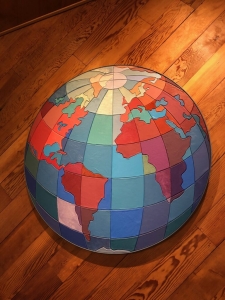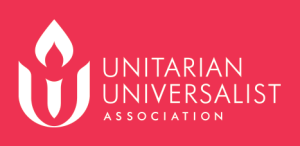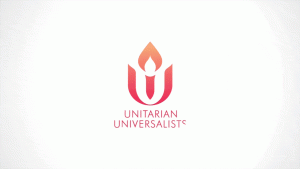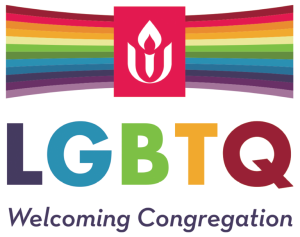The sixth principle: The goal of world community, with peace, liberty and justice for all

An interview with Dennis Shipley, who is a retired nurse and a long-time advocate for peace and justice.
Dennis, you were involved with peace and justice issues before you became a Unitarian Universalist. What role did the ideals in the sixth principle play in your joining this congregation?
I moved to Fort Wayne in October of 1971. I came here to voluntarily begin my three-year obligation to public service concerning my draft status as a conscientious objector to war. My local draft board accepted my employment at the Allen County Health Center as appropriate to this purpose. I continued to march, etc., in objection to the Vietnam War. I met people then I would see again at the Unitarian Universalist Congregation of Fort Wayne. I would continue to agitate whenever we were at war.
When I first started coming to UUCFW, we were still under the original principles from 1961. In these, Principle Four is the closest to the present day Sixth Principle. It reads “To implement our vision of one world by striving for a world community founded on ideals of brotherhood, justice and peace.” I would note that this actually called upon us to do something. Implement is certainly a word of action, it’s actually stronger than the later version, and I remember wondering why the John Birch Society hadn’t already burned down the building. So, I felt right at home.
Were there individuals within UU who helped inspire you in your own advocacy?
There were two founders who were important to me, along with Rev. Richard Langhinrichs and his wife, Ruth, regarding my peace concerns. One was Wirt Fairman, who was a CO in WWII and the last remaining early members who were WWII COs. I discovered from him that the original pastor was also a CO, from Switzerland. The other was Helen Arnold, a congregation founder, whose son-in-law was an executive at the United Nations who would return every year to give us an “update” of the status at the UN for UN Sunday. This was a direct tie to Principle Four for me. There was a friend of the congregation, Tennis Mahoney, who I consulted when I had concerns about my own actions regarding working for peace. These were the most important only.
What aspects of your own peace and justice work have been most important to you?
My last “going to march in DC” with another member of UUCFW was a bus trip to march against the Iraq war with Larry Curtis. We decided we were both too old for 10-hour bus trips as a means to agitate against war. I find it ironic that I would later ride a bus to the South as part of the Racial Justice Team. This work for justice and peace, here, are where I’m spending my efforts these days.
Given the divisions in our country and the world today, what inspires you to keep faith in a world community of peace, liberty and justice for all?
As difficult as it has been, I am encouraged by the changes in the UUA since the General Assembly in 2017. So much push back means we’re doing something good! I admire the work of the Rev. Dr. William J. Barber II and so many others for justice.
Just last night I came upon some of the YouTube segments from David Brooks based on his book “The Second Mountain” concerning the collapse of the world my generation built upon a base of extreme individualism and what may be the coming replacement as our culture resets, and it is not the tribal authoritarianism espoused by Trump, Putin, and so many other “leaders.”



